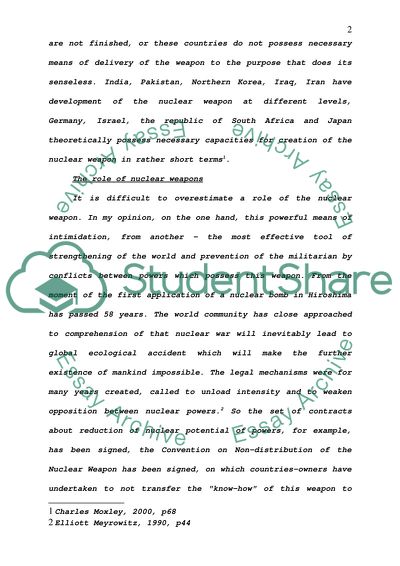Cite this document
(Is the Use of Nuclear Weapons Prohibited by International Humanitarian Essay, n.d.)
Is the Use of Nuclear Weapons Prohibited by International Humanitarian Essay. Retrieved from https://studentshare.org/law/1712426-is-the-use-of-nuclear-weapons-prohibited-by-international-humanitarian-law
Is the Use of Nuclear Weapons Prohibited by International Humanitarian Essay. Retrieved from https://studentshare.org/law/1712426-is-the-use-of-nuclear-weapons-prohibited-by-international-humanitarian-law
(Is the Use of Nuclear Weapons Prohibited by International Humanitarian Essay)
Is the Use of Nuclear Weapons Prohibited by International Humanitarian Essay. https://studentshare.org/law/1712426-is-the-use-of-nuclear-weapons-prohibited-by-international-humanitarian-law.
Is the Use of Nuclear Weapons Prohibited by International Humanitarian Essay. https://studentshare.org/law/1712426-is-the-use-of-nuclear-weapons-prohibited-by-international-humanitarian-law.
“Is the Use of Nuclear Weapons Prohibited by International Humanitarian Essay”, n.d. https://studentshare.org/law/1712426-is-the-use-of-nuclear-weapons-prohibited-by-international-humanitarian-law.


